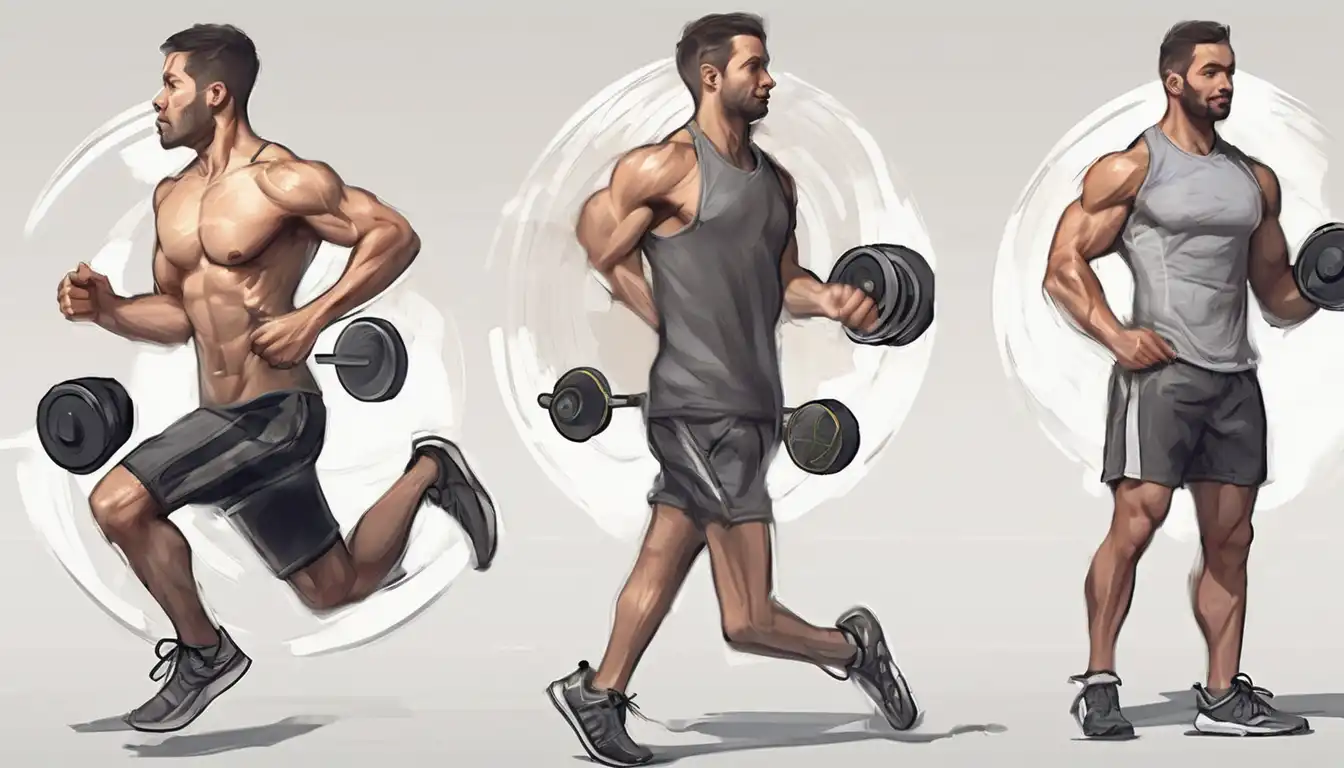Your First Steps to a Healthier Lifestyle
Starting a fitness routine can feel overwhelming, especially if you're new to exercise. Whether you want to lose weight, build strength, or simply feel more energetic, creating a sustainable fitness plan is the key to success. This comprehensive guide will walk you through everything you need to know about starting your fitness journey with confidence.
Why Start a Fitness Routine?
Regular exercise offers numerous benefits beyond just physical appearance. Consistent physical activity can improve your mental health, boost energy levels, and reduce the risk of chronic diseases. According to health experts, even moderate exercise can significantly impact your overall well-being. Many beginners find that starting small and building gradually leads to long-term success.
Assessing Your Current Fitness Level
Before diving into any exercise program, it's crucial to understand your starting point. Take an honest assessment of your current fitness level, including any physical limitations or health concerns. Consider consulting with a healthcare professional if you have pre-existing conditions. This initial evaluation will help you set realistic goals and choose appropriate exercises.
Setting SMART Fitness Goals
Effective goal-setting is essential for maintaining motivation. Use the SMART framework: Specific, Measurable, Achievable, Relevant, and Time-bound. Instead of vague goals like "get fit," aim for specific targets such as "walk 30 minutes daily" or "complete three strength training sessions per week." Remember that progress takes time, and celebrating small victories will keep you motivated throughout your fitness journey.
Choosing the Right Type of Exercise
Different exercises serve different purposes, and variety is key to a balanced routine. Consider incorporating these three main types of exercise:
Cardiovascular Exercise
Cardio exercises improve heart health and endurance. Beginner-friendly options include brisk walking, cycling, swimming, or using an elliptical machine. Start with 20-30 minutes of moderate cardio 3-4 times per week, gradually increasing intensity as your fitness improves.
Strength Training
Building muscle helps boost metabolism and improve overall strength. Beginners can start with bodyweight exercises like squats, push-ups, and planks. As you progress, consider incorporating light weights or resistance bands. Strength training 2-3 times per week is sufficient for most beginners.
Flexibility and Balance
Don't overlook the importance of flexibility and balance exercises. Yoga, stretching, and tai chi can improve mobility and reduce injury risk. Include flexibility work in your routine at least 2-3 times per week, ideally after your workouts when muscles are warm.
Creating Your Weekly Workout Schedule
A balanced weekly schedule might include cardio on Monday, Wednesday, and Friday; strength training on Tuesday and Thursday; with active recovery or flexibility work on weekends. Remember to listen to your body and adjust as needed. Consistency is more important than intensity when you're starting out.
Sample Beginner Workout Plan
Here's a simple starter plan for your first month:
- Week 1-2: 20-minute walks, 2-3 days per week
- Week 3-4: 30-minute walks plus basic bodyweight exercises
- Month 2: Increase intensity and add variety
This gradual approach helps prevent burnout and reduces injury risk. For more detailed workout plans, check out our beginner workout collection.
Essential Equipment for Beginners
You don't need expensive equipment to start your fitness journey. Basic items include comfortable workout clothes, supportive shoes, and a water bottle. As you progress, consider investing in a yoga mat, resistance bands, or light dumbbells. Many effective exercises require no equipment at all.
Proper Form and Technique
Learning correct form is crucial for preventing injuries and maximizing results. Focus on mastering basic movements before adding weight or intensity. Consider working with a certified trainer initially or using reliable online resources. Poor form can lead to long-term issues, so take the time to learn proper techniques.
Common Beginner Mistakes to Avoid
Many newcomers make similar errors that can hinder progress. Avoid these common pitfalls:
- Starting too intensely and risking injury
- Comparing your progress to others
- Skipping warm-ups and cool-downs
- Neglecting proper nutrition and hydration
- Expecting immediate results
Nutrition and Hydration Basics
Exercise and nutrition go hand in hand. Fuel your body with balanced meals containing lean proteins, complex carbohydrates, and healthy fats. Stay hydrated throughout the day, especially around workout times. Proper nutrition supports your fitness goals and aids recovery. For specific dietary guidance, explore our fitness nutrition guide.
Staying Motivated and Tracking Progress
Maintaining motivation is often the biggest challenge for beginners. Try these strategies to stay on track:
- Find an exercise buddy for accountability
- Track your progress with a journal or app
- Mix up your routine to prevent boredom
- Set small, achievable milestones
- Reward yourself for consistency
Dealing with Setbacks
Everyone experiences setbacks in their fitness journey. Missed workouts, plateaus, or minor injuries are normal. The key is to not let temporary obstacles derail your progress. Learn to adapt and get back on track without self-criticism. Remember that consistency over time yields results.
When to Seek Professional Guidance
While many beginners can start independently, certain situations warrant professional input. Consider consulting a fitness professional if you have specific health concerns, want to learn proper technique, or need personalized programming. Many gyms offer introductory sessions with trainers, and online resources can provide valuable guidance.
Building Long-Term Habits
The ultimate goal is to make fitness a sustainable part of your lifestyle. Focus on developing habits rather than pursuing short-term fixes. As you progress, you can explore more advanced techniques and specialized training methods. The foundation you build as a beginner will serve you for years to come.
Starting a fitness routine is one of the best investments you can make in your health. By following these guidelines and maintaining consistency, you'll soon experience the physical and mental benefits of regular exercise. Remember that every expert was once a beginner, and the most important step is simply getting started.
For additional support and resources, visit our beginner fitness community where you can connect with others on similar journeys and share experiences.
